Lecture # 6 1. Emergence of Islam

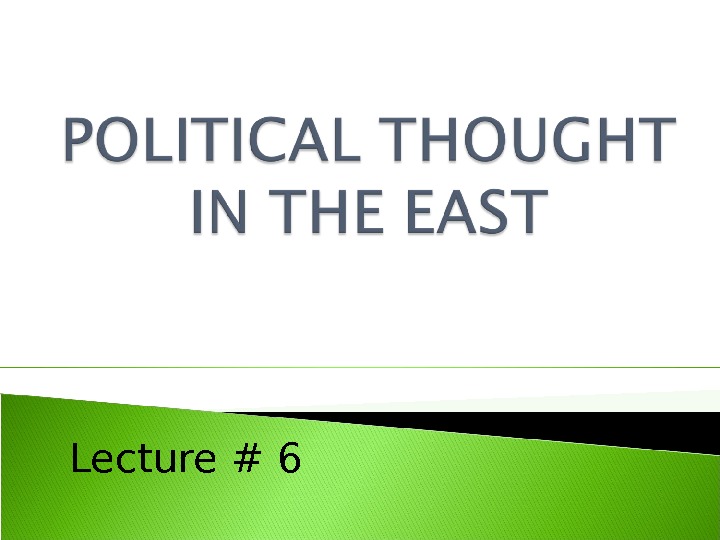
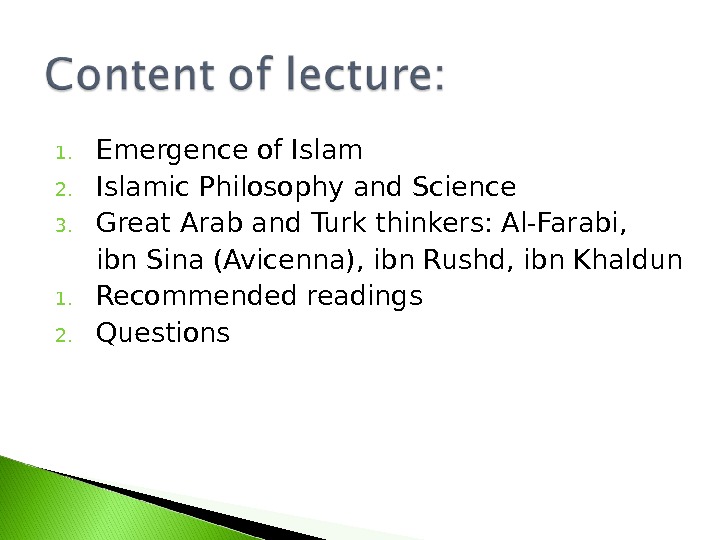
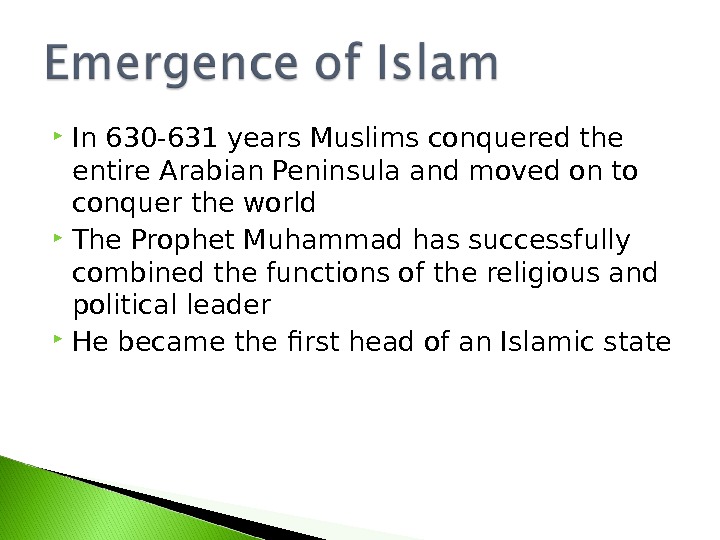
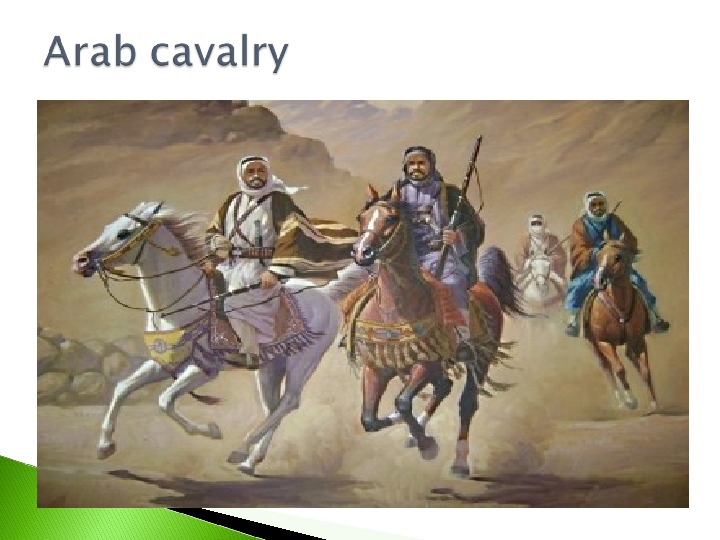
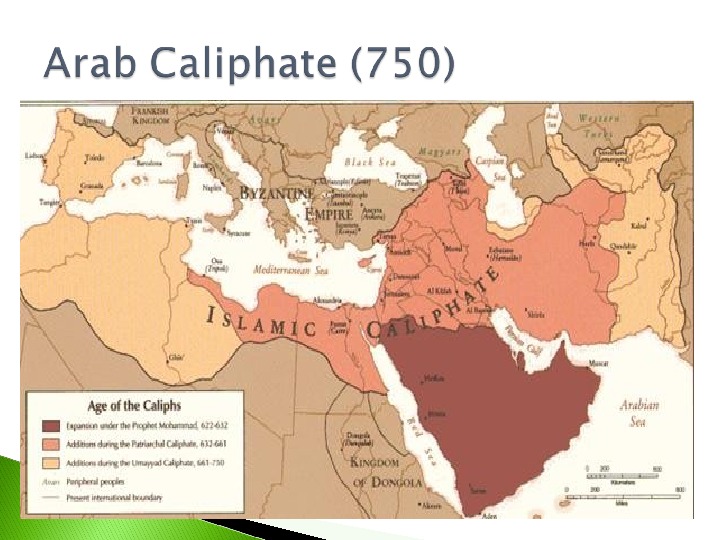
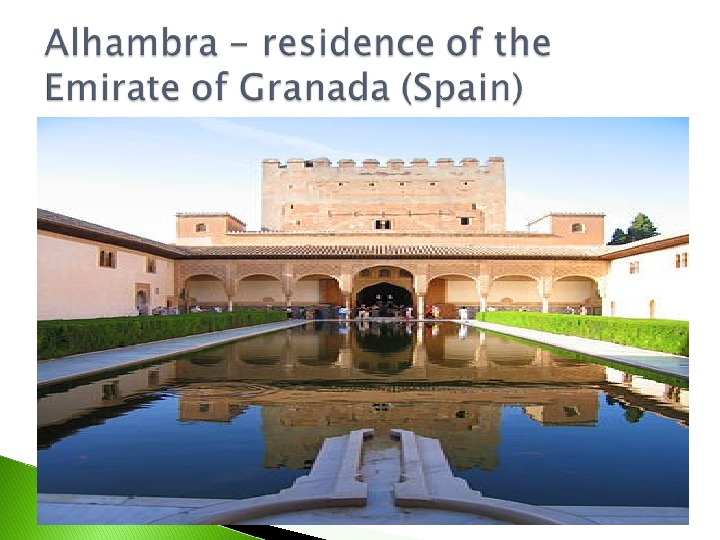
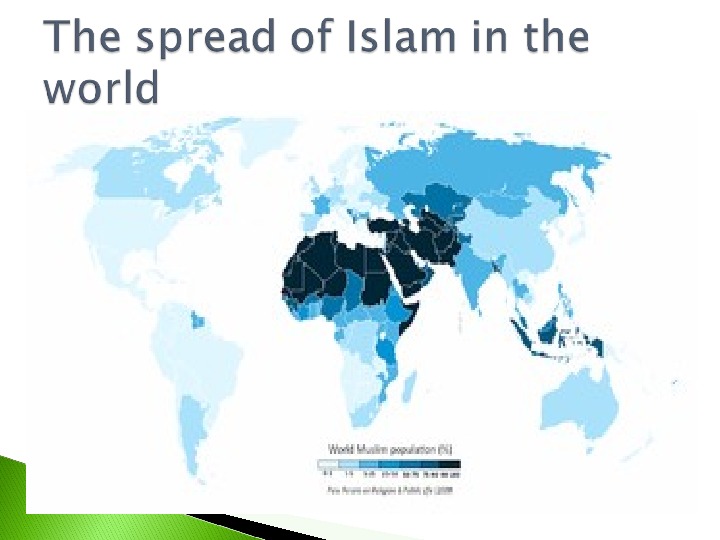
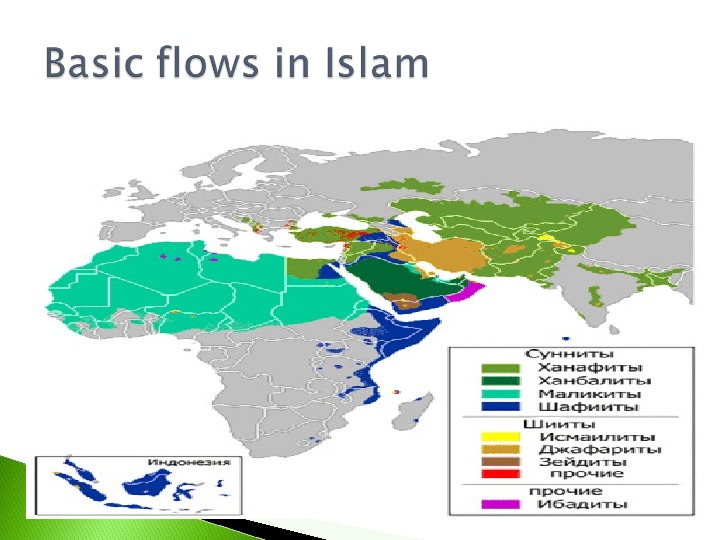
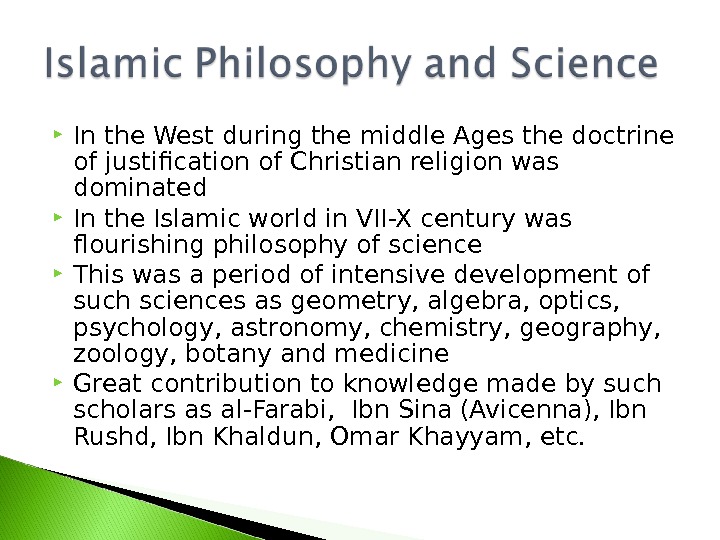
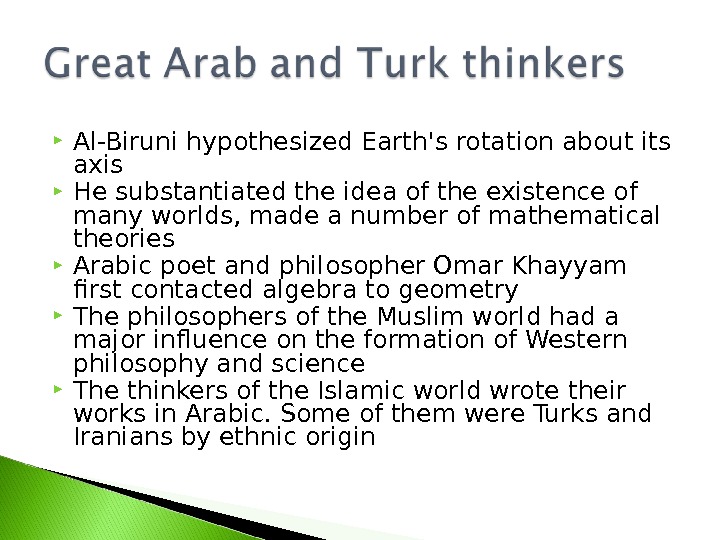
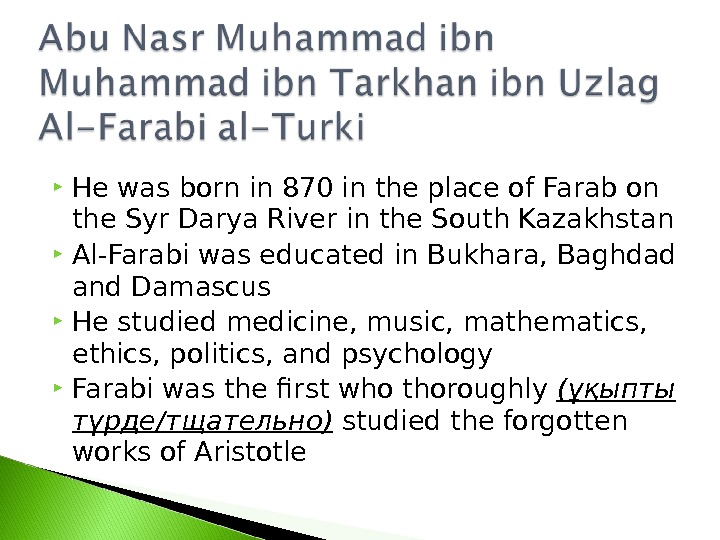
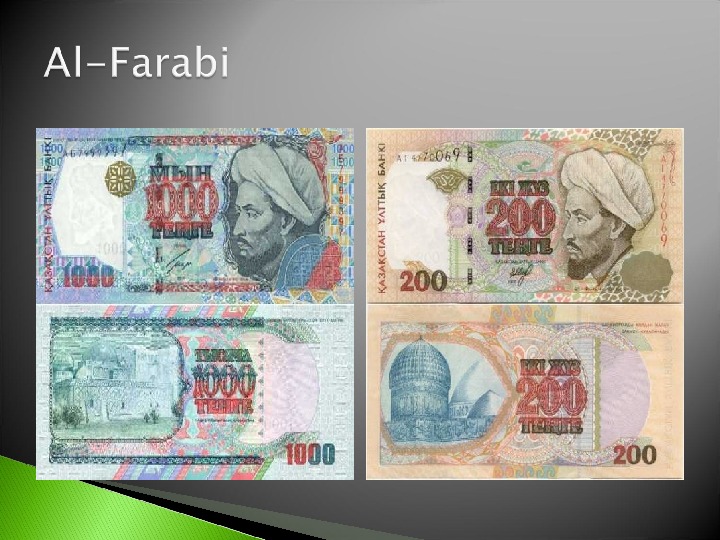


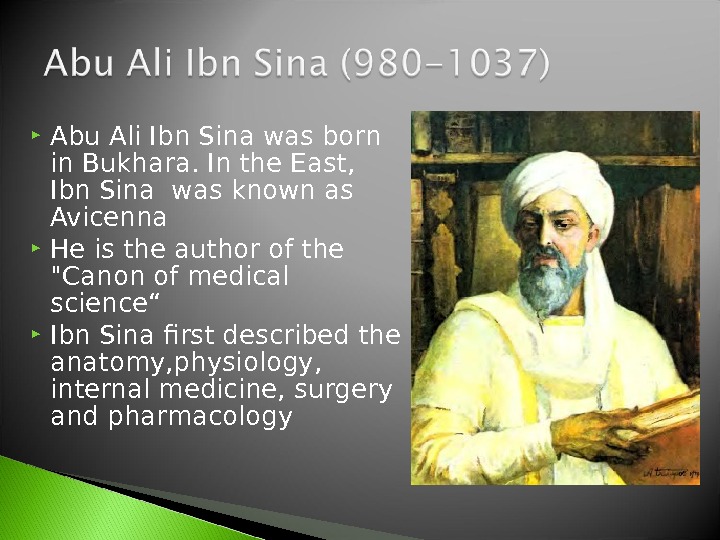
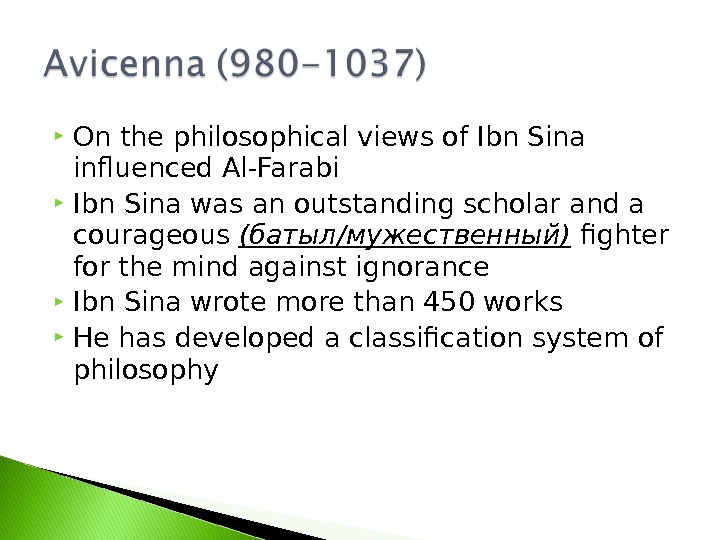
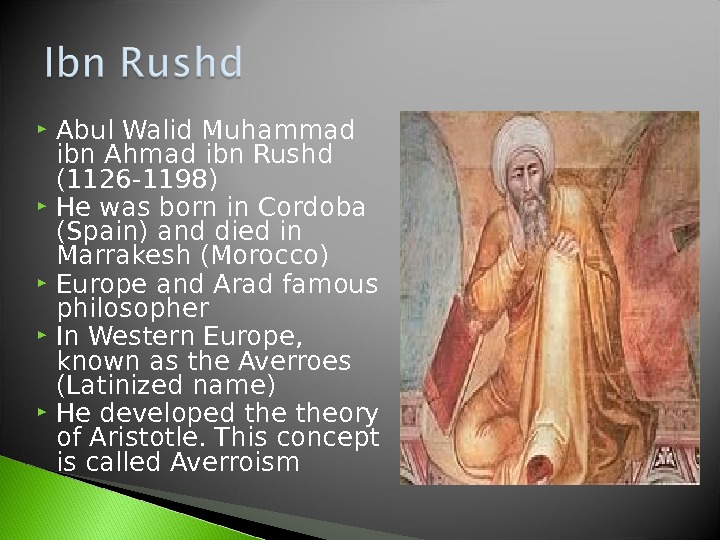
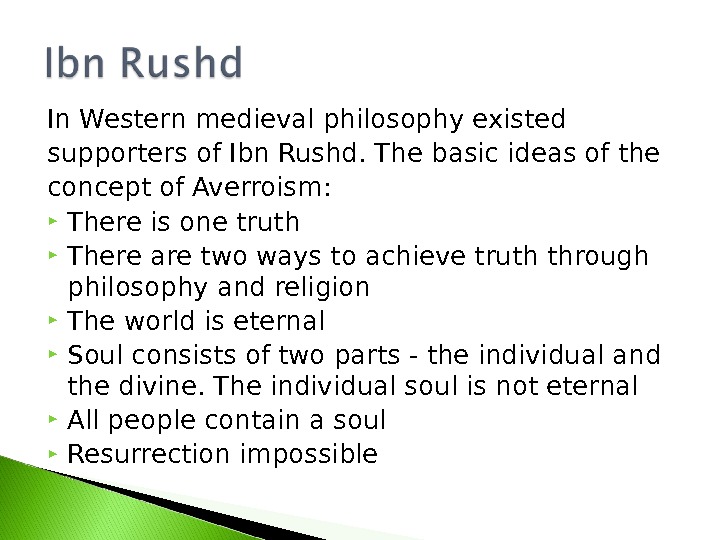
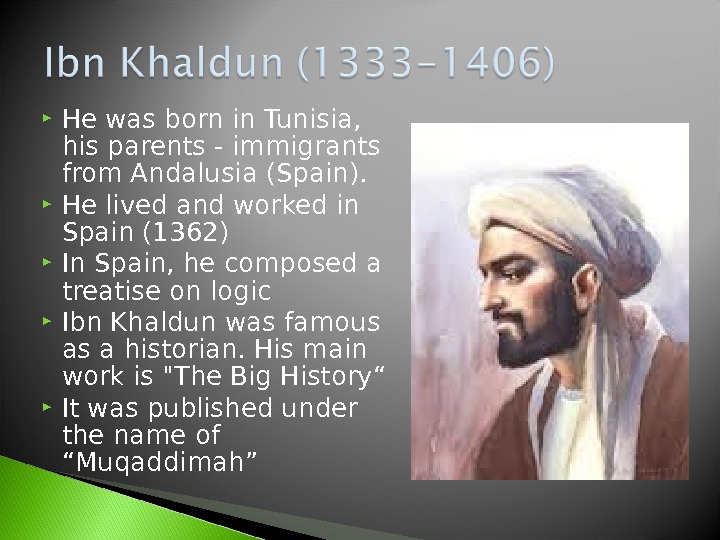
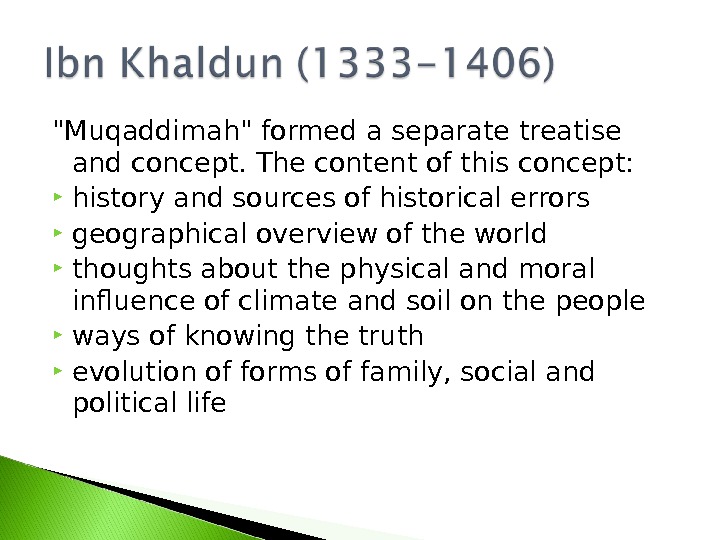
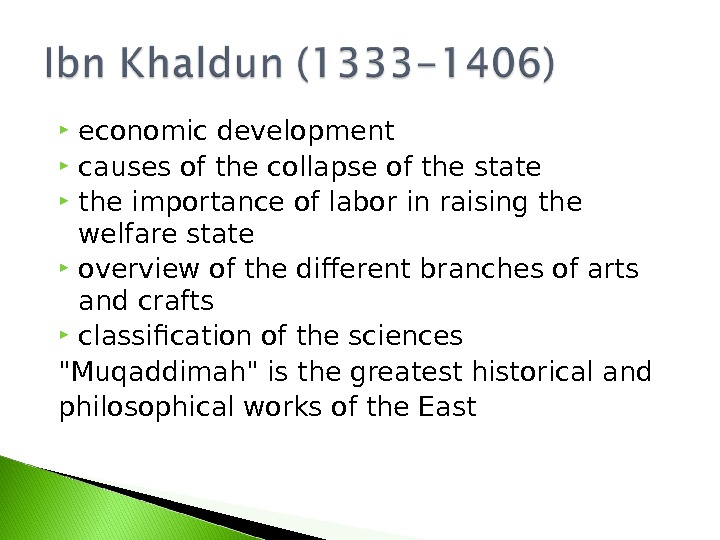
- Размер: 2.9 Mегабайта
- Количество слайдов: 21
Описание презентации Lecture # 6 1. Emergence of Islam по слайдам
 Lecture #
Lecture #
 1. Emergence of Islam 2. Islamic Philosophy and Science 3. Great Arab and Turk thinkers: Al-Farabi, ibn Sina (Avicenna), ibn Rushd, ibn Khaldun 1. Recommended readings 2. Questions
1. Emergence of Islam 2. Islamic Philosophy and Science 3. Great Arab and Turk thinkers: Al-Farabi, ibn Sina (Avicenna), ibn Rushd, ibn Khaldun 1. Recommended readings 2. Questions
 In 630 -631 years Muslims conquered the entire Arabian Peninsula and moved on to conquer the world The Prophet Muhammad has successfully combined the functions of the religious and political leader He became the first head of an Islamic state
In 630 -631 years Muslims conquered the entire Arabian Peninsula and moved on to conquer the world The Prophet Muhammad has successfully combined the functions of the religious and political leader He became the first head of an Islamic state





 In the West during the middle Ages the doctrine of justification of Christian religion was dominated In the Islamic world in VII-X century was flourishing philosophy of science This was a period of intensive development of such sciences as geometry, algebra, optics, psychology, astronomy, chemistry, geography, zoology, botany and medicine Great contribution to knowledge made by such scholars as al-Farabi, Ibn Sina (Avicenna), Ibn Rushd, Ibn Khaldun, Omar Khayyam, etc.
In the West during the middle Ages the doctrine of justification of Christian religion was dominated In the Islamic world in VII-X century was flourishing philosophy of science This was a period of intensive development of such sciences as geometry, algebra, optics, psychology, astronomy, chemistry, geography, zoology, botany and medicine Great contribution to knowledge made by such scholars as al-Farabi, Ibn Sina (Avicenna), Ibn Rushd, Ibn Khaldun, Omar Khayyam, etc.
 Al-Biruni hypothesized Earth’s rotation about its axis He substantiated the idea of the existence of many worlds, made a number of mathematical theories Arabic poet and philosopher Omar Khayyam first contacted algebra to geometry The philosophers of the Muslim world had a major influence on the formation of Western philosophy and science The thinkers of the Islamic world wrote their works in Arabic. Some of them were Turks and Iranians by ethnic origin
Al-Biruni hypothesized Earth’s rotation about its axis He substantiated the idea of the existence of many worlds, made a number of mathematical theories Arabic poet and philosopher Omar Khayyam first contacted algebra to geometry The philosophers of the Muslim world had a major influence on the formation of Western philosophy and science The thinkers of the Islamic world wrote their works in Arabic. Some of them were Turks and Iranians by ethnic origin
 He was born in 870 in the place of Farab on the Syr Darya River in the South Kazakhstan Al-Farabi was educated in Bukhara, Baghdad and Damascus He studied medicine, music, mathematics, ethics, politics, and psychology Farabi was the first who thoroughly ( ұқыпты түрде/ тщательно ) studied the forgotten works of Aristotle
He was born in 870 in the place of Farab on the Syr Darya River in the South Kazakhstan Al-Farabi was educated in Bukhara, Baghdad and Damascus He studied medicine, music, mathematics, ethics, politics, and psychology Farabi was the first who thoroughly ( ұқыпты түрде/ тщательно ) studied the forgotten works of Aristotle

 Al-Farabi played for the scientific knowledge of the world and was against coercion ( мәжбүр ету/ принуждение ) and violence in society He believed that evil will be destroyed and good will prevail on the land He discovered a theoretical basis for the ideal of a society without war, violence and enslavement He was one of the first to propose the idea of peaceful relations between the peoples of the earth
Al-Farabi played for the scientific knowledge of the world and was against coercion ( мәжбүр ету/ принуждение ) and violence in society He believed that evil will be destroyed and good will prevail on the land He discovered a theoretical basis for the ideal of a society without war, violence and enslavement He was one of the first to propose the idea of peaceful relations between the peoples of the earth
 In his writings, «The views of the inhabitants of the virtuous ( ізгілікті/ добродетельный ) city», «Civil Policy» Al-Farabi considered problems of politics and morality, government and society of that period Philosophical ideas of al-Farabi had an impact on the formation and development of the ideas of West (Spinoza) The ideas of al-Farabi influenced the views of many thinkers of the Muslim world, such as Ibn Sina, J. Balasaguni etc.
In his writings, «The views of the inhabitants of the virtuous ( ізгілікті/ добродетельный ) city», «Civil Policy» Al-Farabi considered problems of politics and morality, government and society of that period Philosophical ideas of al-Farabi had an impact on the formation and development of the ideas of West (Spinoza) The ideas of al-Farabi influenced the views of many thinkers of the Muslim world, such as Ibn Sina, J. Balasaguni etc.
 Abu Ali Ibn Sina was born in Bukhara. In the East, Ibn Sina was known as Avicenna He is the author of the «Canon of medical science“ Ibn Sina first described the anatomy, physiology, internal medicine, surgery and pharmacology
Abu Ali Ibn Sina was born in Bukhara. In the East, Ibn Sina was known as Avicenna He is the author of the «Canon of medical science“ Ibn Sina first described the anatomy, physiology, internal medicine, surgery and pharmacology
 On the philosophical views of Ibn Sina influenced Al-Farabi Ibn Sina was an outstanding scholar and a courageous ( батыл/ мужественный ) fighter for the mind against ignorance Ibn Sina wrote more than 450 works He has developed a classification system of philosophy
On the philosophical views of Ibn Sina influenced Al-Farabi Ibn Sina was an outstanding scholar and a courageous ( батыл/ мужественный ) fighter for the mind against ignorance Ibn Sina wrote more than 450 works He has developed a classification system of philosophy
 Abul Walid Muhammad ibn Ahmad ibn Rushd (1126 — 1198) He was born in Cordoba (Spain) and died in Marrakesh (Morocco) Europe and Arad famous philosopher In Western Europe, known as the Averroes (Latinized name) He developed theory of Aristotle. This concept is called Averroism
Abul Walid Muhammad ibn Ahmad ibn Rushd (1126 — 1198) He was born in Cordoba (Spain) and died in Marrakesh (Morocco) Europe and Arad famous philosopher In Western Europe, known as the Averroes (Latinized name) He developed theory of Aristotle. This concept is called Averroism
 In Western medieval philosophy existed supporters of Ibn Rushd. The basic ideas of the concept of Averroism: There is one truth There are two ways to achieve truth through philosophy and religion The world is eternal Soul consists of two parts — the individual and the divine. The individual soul is not eternal All people contain a soul Resurrection impossible
In Western medieval philosophy existed supporters of Ibn Rushd. The basic ideas of the concept of Averroism: There is one truth There are two ways to achieve truth through philosophy and religion The world is eternal Soul consists of two parts — the individual and the divine. The individual soul is not eternal All people contain a soul Resurrection impossible
 He was born in Tunisia, his parents — immigrants from Andalusia (Spain). He lived and worked in Spain (1362) In Spain, he composed a treatise on logic Ibn Khaldun was famous as a historian. His main work is «The Big History“ It was published under the name of “Muqaddimah”
He was born in Tunisia, his parents — immigrants from Andalusia (Spain). He lived and worked in Spain (1362) In Spain, he composed a treatise on logic Ibn Khaldun was famous as a historian. His main work is «The Big History“ It was published under the name of “Muqaddimah”
 «Muqaddimah» formed a separate treatise and concept. The content of this concept: history and sources of historical errors geographical overview of the world thoughts about the physical and moral influence of climate and soil on the people ways of knowing the truth evolution of forms of family, social and political life
«Muqaddimah» formed a separate treatise and concept. The content of this concept: history and sources of historical errors geographical overview of the world thoughts about the physical and moral influence of climate and soil on the people ways of knowing the truth evolution of forms of family, social and political life
 economic development causes of the collapse of the state the importance of labor in raising the welfare state overview of the different branches of arts and crafts classification of the sciences «Muqaddimah» is the greatest historical and philosophical works of the East
economic development causes of the collapse of the state the importance of labor in raising the welfare state overview of the different branches of arts and crafts classification of the sciences «Muqaddimah» is the greatest historical and philosophical works of the East

